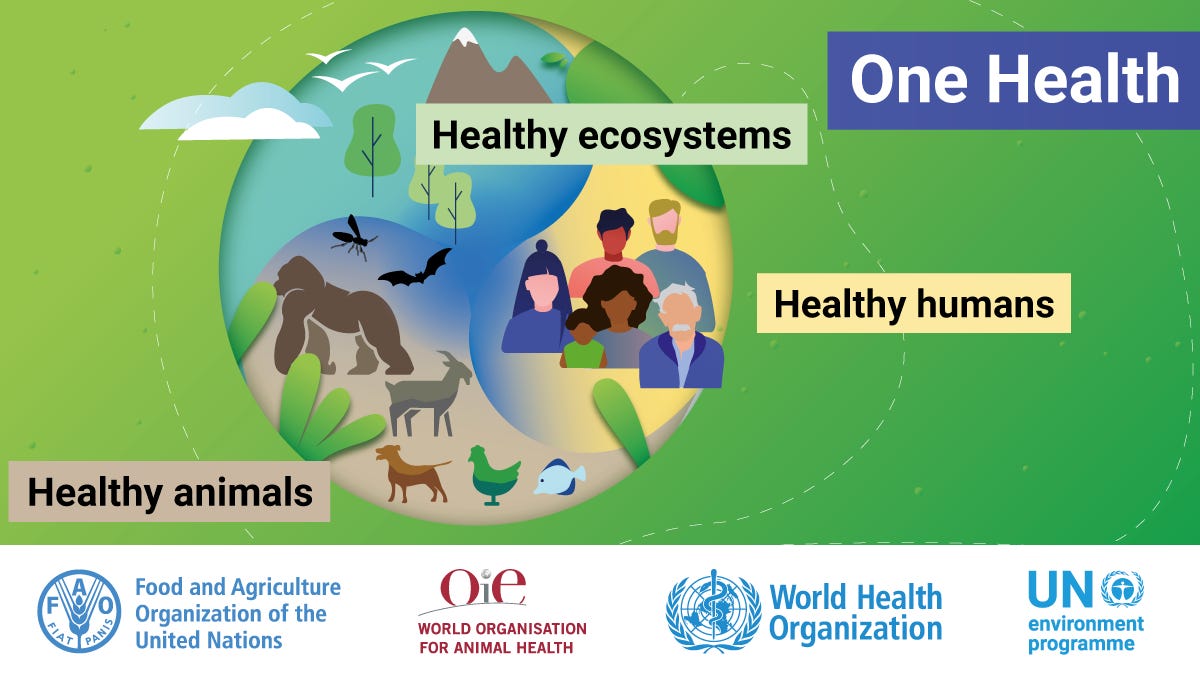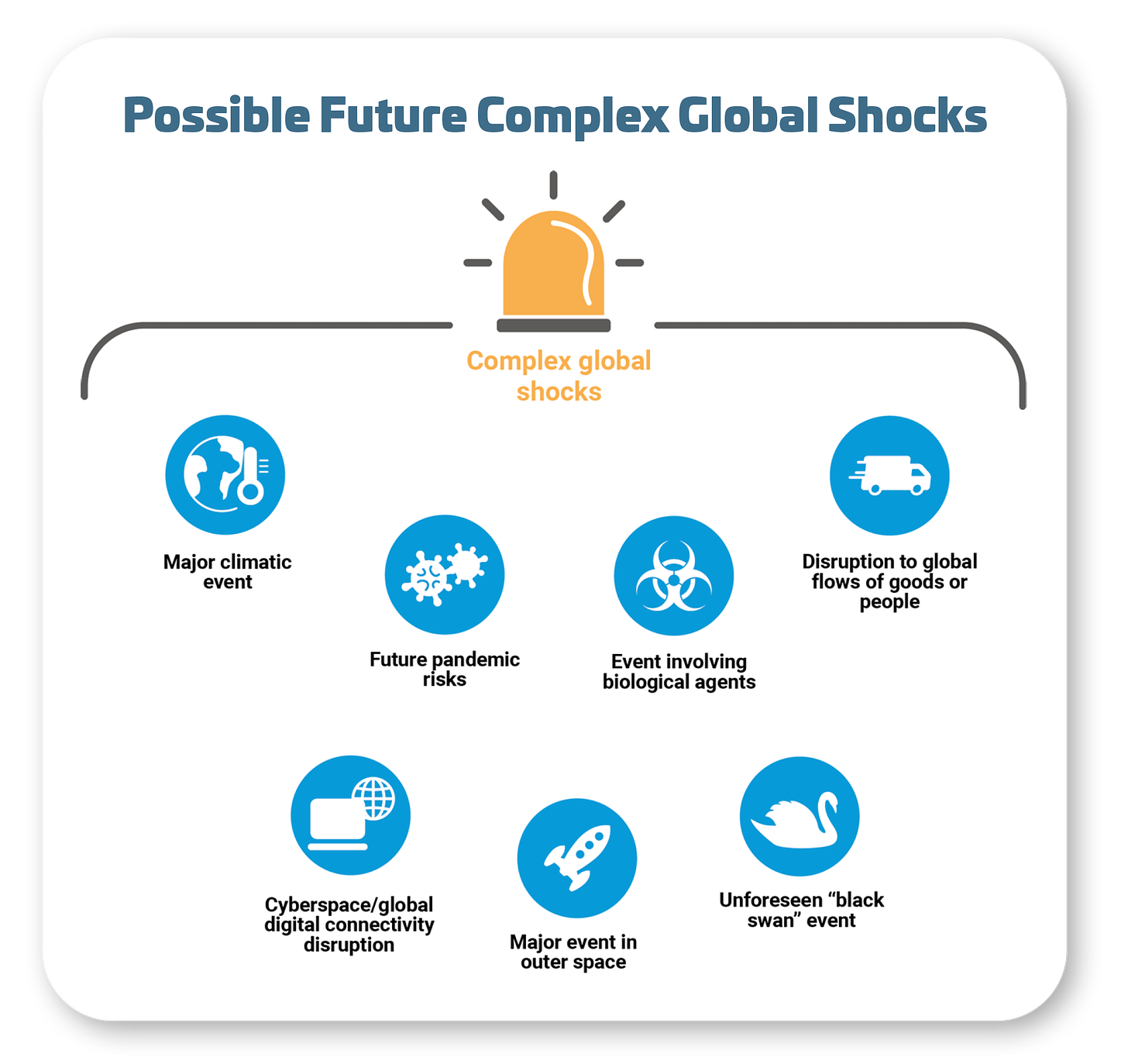Who Made the WHO? One World, One Health, One Leader
The health and climate agenda is dominated by international philanthropy and their obedient puppets

All Global Research articles can be read in 51 languages by activating the Translate Website button below the author’s name (only available in desktop version).
To receive Global Research’s Daily Newsletter (selected articles), click here.
Click the share button above to email/forward this article to your friends and colleagues. Follow us on Instagram and Twitter and subscribe to our Telegram Channel. Feel free to repost and share widely Global Research articles.
Global Research Wants to Hear From You!
***
This week the World Health Assembly is taking place under the motto “All for Health: Health for All”. Ahead of this meeting, Director-General Tedros Adhanom Ghebreyesus announced that negotiations on a Pandemic Treaty and updated International Health Regulations have not been completed.
Many interpret this as a partial victory against the forces that wish to give the WHO greater powers. However, this does not mean that the proposals are rejected.[1] Instead, the negotiation period for the Pandemic Treaty is extended to between 5 and 24 months, while the negotiations on the Health Regulations are extended by a few days at most.[2]
It is the Health Regulations that govern the response to a global health emergency (including the establishment of an “emergency committee”), while the treaty is about creating an international framework aimed at “preventing, preparing and responding to pandemics”. The treaty also includes a decision-making body, the Conference of the Parties (similar to the UN’s annual COP climate summit) which will meet once a year to review the implementation of the agreement, as well as the One Health concept, which aims to sustainably balance and optimize the health of people, animals and ecosystems.[3]

The One Health concept was developed in September 2004 during a symposium with leading health experts organised by the World Conservation Society at Rockefeller University in New York under the slogan “One World, One Health”.[4]
This included, among others, representatives from WHO, FAO, Centers for Disease Control and Prevention and the International Union for Conservation of Nature (IUCN). Their final product, called the Manhattan Principles, contained twelve recommendations for “a more holistic approach” to preventing epidemics.
This means in practice a fusion of the climate/environmental and health agendas. That is, two of the areas that were pointed out as favorable to promote the construction of a new world order (One World) in the Rockefeller Brothers Fund’s Special Studies Project at the end of the 1950s.
Even now, the Rockefeller network participates in a very tangible way.
The Pandemic Treaty is a continuation of their old agenda, while the WHO is in many ways an organisation they have exerted influence on since its inception in 1948.[5] The predecessor League of Nations Health Organization was basically a subdivision of the Rockefeller Foundation’s International Health Division.[6]
In January 2022, the Rockefeller Foundation was recognized as a “Non-Governmental Actor in Official Relations with the WHO” while in May 2023 it launched a new partnership with the WHO to “expand pandemic preparedness in the era of climate change” through the WHO’s Hub for Pandemic and Epidemic Intelligence. Digitization, data collection and surveillance are central components of the UN’s technocratic future agenda.[7] Commenting on the partnership announcement, the foundation’s chief executive Rajiv Shah (member of the Trilateral Commission) said: Climate change is increasing both the risk of another global pandemic and the need to collaborate and share data.

From UN Policy Brief 2 Strengthening the International Response to Complex Global Shocks – An Emergency Platform
In 2015, Shah was member of the United Nations High-Level Panel on Global Response to Health Crises. It is clear that the Rockefeller Foundation and the WHO are preparing for future global shocks and emergencies.[8]
The close collaboration is also manifested by the former British Prime Minister Gordon Brown, who is the WHO’s Ambassador for Global Health Financing, since March 2024 sitting on the board of the Rockefeller Foundation.
It truly is an honor to join The Rockefeller Foundation and support their work to help the world as it continues facing multiple global crises.[9]
Who will then be tasked with leading the UN when the global complex shocks paralyze the world? Current Secretary-General António Guterres will leave his post in December 2026.
It is possible that the answer was given during the first day of the World Health Assembly, when Tedros presented the WHO’s Award for Global Health to the developers of the mRNA vaccine (which was also awarded the Nobel Prize in December 2023) but also to the Prime Minister of Barbados, Mia Mottley, for her leadership in climate and health.[10] The justification was:
WHO considers climate change to be the greatest health threat facing humanity. Her tireless efforts for climate action help protect the health of all peoples, now and in the future.[11]
The award can be seen as an appreciation from her patrons in international philanthropy, and also an encouragement for future efforts.[12] The United Nations Environment Program (UNEP) also awarded Mottley the “Champions of the Earth for Policy Leadership” award in 2021 for her climate leadership. Mottley, who chairs WHO’s Global Leaders Group on Antimicrobial Resistance, is committed to the sustainability agenda and leads SDG Advocates together with Canadian Prime Minister Justin Trudeau.[13] She stepped forward as a female leader during the pandemic and participated in UN campaigns to “save lives”.
In July 2022, Mottley hosted a meeting in Barbados with UN Deputy Secretary-General Amina Mohammed, representatives of the Rockefeller Foundation, the Open Society Foundations and other key players to draft the “Bridgetown Initiative” on how the international financial system can be reformed to stop climate change.[14] This reform work is part of the UN’s Our Common Agenda (which is supposed to be decided at the Summit of the Future in September).[15]
Mottley, a lawyer educated at the London School of Economics, has been singled out by several sources within the UN as a possible candidate for the post as the UN’s first female Secretary-General.[16] In the draft of the UN’s Pact for the Future (to be signed at the separate UN Summit for the Future in New York in September 2024), it is regretted that no woman has held the post so far, which can be interpreted as the time is now ripe.[17] As both a woman and black, Mottley appears to be an ideal candidate.
However, a new Secretary-General needs the support of all the permanent members of the Security Council (the US, UK, France, China, and Russia) in order to be elected. That is one reason why the Secretary-General has so far come from countries without any major international influence. It also means that international philanthropy is courting and rewarding candidates from smaller states who can serve as their obedient puppets. Guterres and representatives Ban-Ki Moon and Kofi Annan are clear examples of this.
However, Mottley may have too much “balls” compared to these gentlemen. In addition, she supports a reform that deprives the permanent members of the Security Council its unique veto powers, something which is not in her favor.[18] There are more candidates who are faithful to the technocratic futures agenda. We can be sure that whoever will assume the role of “Emergency General” of the “Pact for the Future” will have the blessing of international philanthropy.
*
Note to readers: Please click the share button above. Follow us on Instagram and Twitter and subscribe to our Telegram Channel. Feel free to repost and share widely Global Research articles.
Notes
[1] It is possible to draw a parallel with Copenhagen in 2009, where the parties failed to reach an agreement on a new climate agreement. Instead, negotiations continued until the Paris Agreement was reached in 2015.
[2] apps.who.int/gb/ebwha/pdf_files/WHA77/A77_9-en.pdf
[3] apps.who.int/gb/ebwha/pdf_files/WHA77/A77_10-en.pdf
[4] The World Conservation Society was formerly the New York Zoological Society and was led after World War II by Henry Fairfield Osborn Jr. and Laurance Rockefeller.
[5] who.int/about/funding/contributors/the-rockefeller-foundation
[6] un-ilibrary.org/content/books/9789210577021c005
[7] rockefellerfoundation.org/news/the-rockefeller-foundation-and-world-health-organization-announce-partnership-to-expand-global-pandemic-preparedness-in-era-of-climate-change
[8] press.un.org/en/2015/sga1558.doc.htm
[9] www.rockefellerfoundation.org/news/rockefeller-foundation-adds-former-prime-minister-gordon-brown-to-board/
[10] who.int/news/item/27-05-2024-director-general-s-award-for-global-health-go-to-prime-minister-of-barbados-and-developers-of-mrna-vaccines-for-covid-19
[11] who.int/news/item/27-05-2024-director-general-s-award-for-global-health-go-to-prime-minister-of-barbados-and-developers-of-mrna-vaccines-for-covid-19
[12] rockefellerfoundation.org/insights/perspective/getting-it-done-addressing-climate-change-will-take-bold-reforms/
[13] unsdgadvocates.org/news/un-secretary-general-antnio-guterres-announces-the-prime-minister-of-barbados-and-prime-minister-of-canada-as-the-new-co-chairs-of-the-sdg-advocates-group
[14] carnegieendowment.org/posts/2023/06/was-a-global-financial-summit-the-start-of-a-new-bretton-woods?lang=en
[15] un.org/sites/un2.un.org/files/our-common-agenda-policy-brief-international-finance-architecture-en.pdf
[16] edition.cnn.com/2023/09/29/americas/united-nations-secretary-general-mia-mottley-intl-latam/index.html
[17] un.org/sites/un2.un.org/files/sotf-pact-for-the-future-rev.1.pdf
[18] globalissues.org/news/2024/04/16/36478
Featured image source

